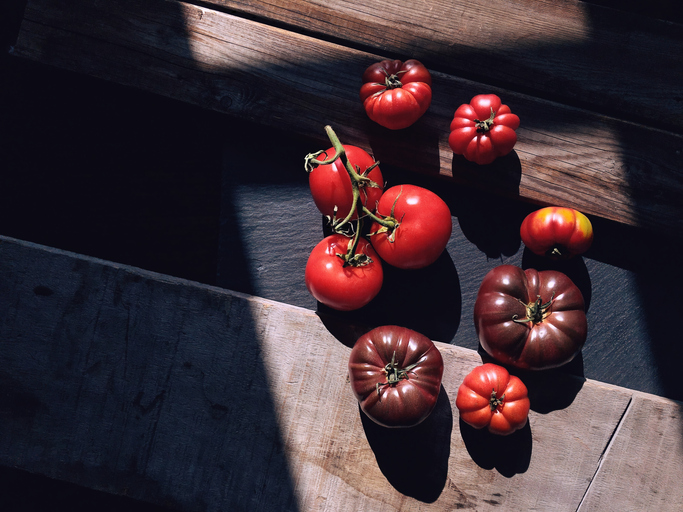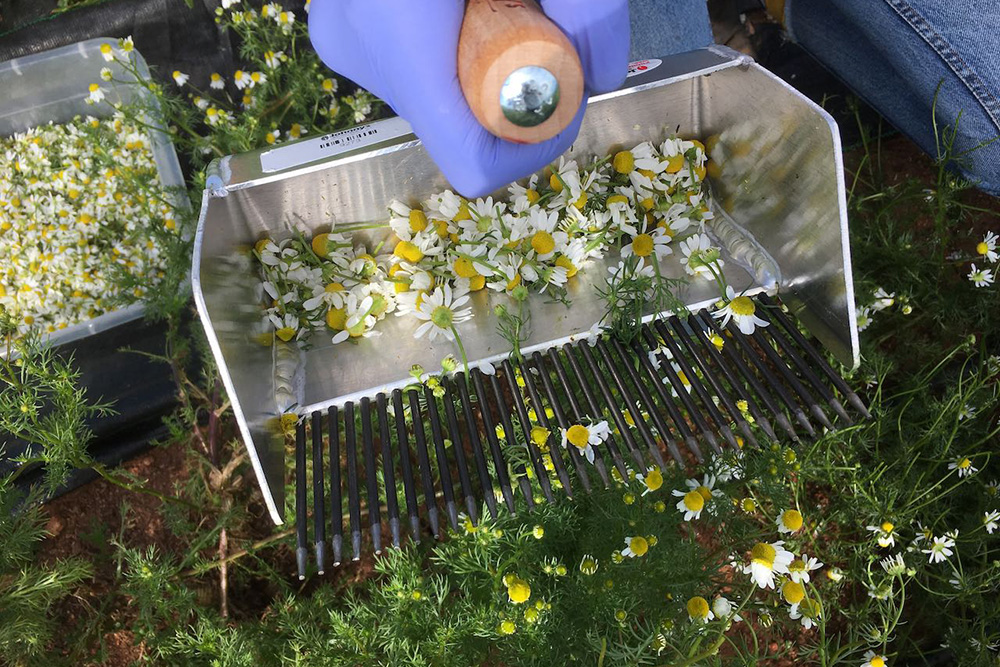
The door to UGArden’s herb drying room leads to an olfactory explosion — sharp peppermint, earthy tulsi, sweet calendula and floral chamomile mix into an herbal perfume that would undoubtedly have tea drinkers reaching for their kettles.
Now University of Georgia students will be able to get a taste of UGArden’s chamomile tea, along with a selection of the student community farm’s other herbal teas, with their campus meals as the UGArden medicinal herb program expands into UGA dining halls this spring.
UGArden’s chamomile tea is already available in the Oglethorpe Dining Commons and will be added to additional dining hall locations in the coming weeks.
“I hope that the UGA community is able to take pride in and enjoy a fresh herbal tea grown right here in Athens,” said Ty Brooks, UGArden director. “In addition to benefiting our local community, we hope increasing availability of our teas on campus also increases awareness of the work we do at UGArden and the opportunity for the public to get involved.”
UGArden, part of the UGA College of Agricultural and Environmental Sciences, teaches students to grow food using organic practices through experiential learning; shares healthy, sustainably grown food with members of the local community who are facing food insecurity; and fosters an entrepreneurial spirit — including the UGArden medicinal herb program.
From a passion for medicinal herbs to entrepreneurial training
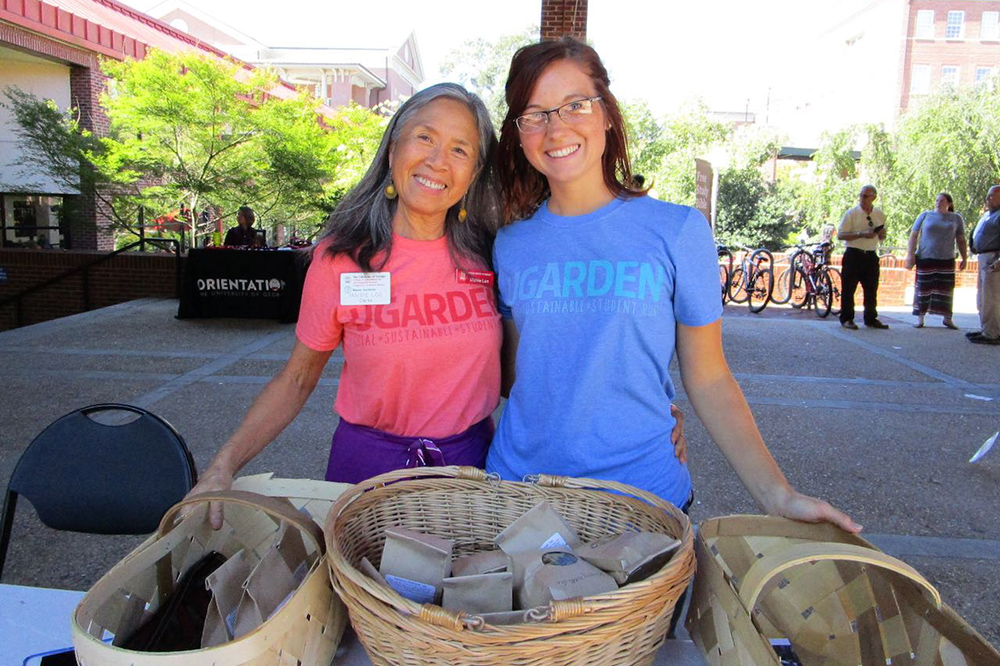
The UGArden medicinal herb program began with a simple passion for experimenting with medicinal and culinary herbs. Maisie Loo and Marsha Baxter, both Master Gardener Extension Volunteers, were the first to grow and experiment with herbs in demonstration plots at UGArden.
During her final year of undergraduate studies, Noelle Joy began working with Loo at UGArden and was immediately hooked on medicinal herbs. Intrigued by the idea of expanding the initiative, she began to develop a program grounded in entrepreneurship and experiential learning.
“I had the vision to expand the herb program and make it into a business, using it as a program to train students about entrepreneurship and production and to get more systems and processes in place,” said Joy, a doctoral candidate in the CAES Department of Horticulture. “My goal when I took over as the program manager was to scale the program and make it into more of a business. I wanted to be able to train students and then use what we were learning about business practices and farming practices of medicinal herbs to share with other growers.”
While earning her undergraduate degree from the UGA College of Family and Consumer Sciences and her master’s degree from UGA horticulture department, Joy evolved the medicinal herb program, developing and branding a line of herbal products including lip balms, salves, spice blends and, of course, herbal teas.
Over the years, Joy and her students developed, packaged and branded a line of products they would sell at plant sales, holiday markets and eventually the State Botanical Garden of Georgia, the Market at Tate and Community.
For Joy, providing the opportunity to offer students experience in medicinal herbs — a research topic that can be hard to establish, especially early in a career — became a driving force in broadening the program.
“To have this chance for students who are at the beginning of their careers, getting to see what medicinal plants look like, when they are growing and getting to work with them, is a beautiful experience,” Joy said. “Even just being around medicinal plants can help with calming; just the act of working with medicinal plants can be very powerful.”
New ideas launch next phase of herbal medicine program
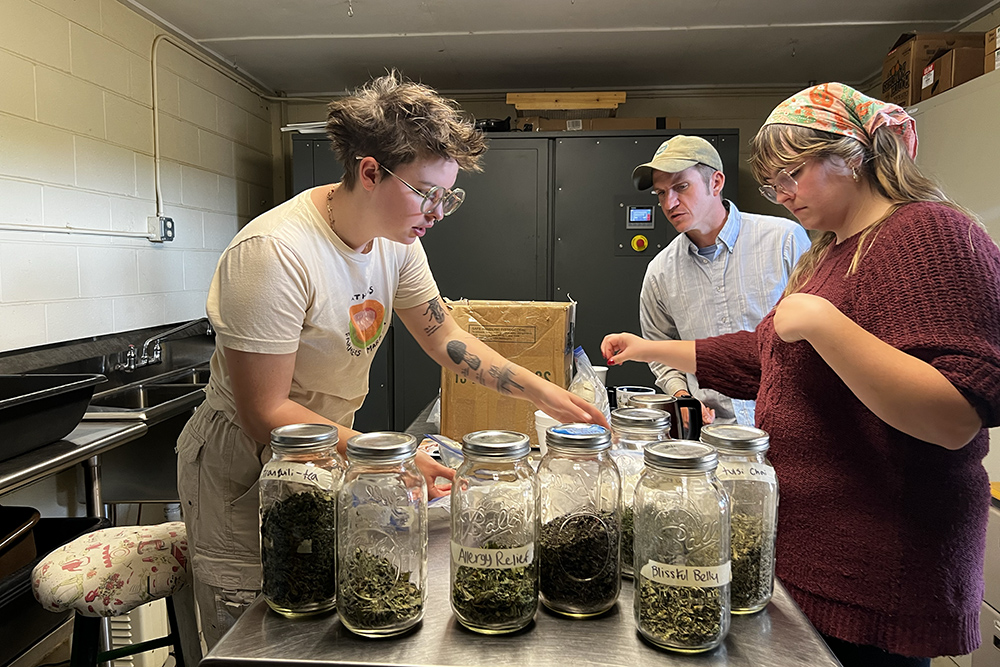
While Joy stepped away from the program to pursue her doctorate — she is finishing her dissertation before an expected summer graduation — she is grateful and excited to see the next phase of the UGArden herbal medicine program, including the expansion of herbal tea sales.
“It’s great when new people come in with new ideas — I’m really excited,” Joy said. “I think it’s fabulous that students are going to be able to access plant material that’s grown right on campus.”
Brooks, who joined UGArden as director in early 2023, said that one of the first things he was encouraged to explore in his new role was a partnership with the dining halls.
“I didn’t know how it was going to go because the perception, I think, has always been the idea of us doing vegetables or something like that. But scale-wise, that’s very difficult because they’re serving thousands of meals per day,” Brooks said. “Eventually, at a kickoff meeting, they asked if we could produce a bagged tea. I said, ‘That’s a definite possibility. Let us look into that.’”
The transition from loose-leaf tea to a bagged option was not as straightforward as Brooks and his team hoped. Sachet packaging machines — the equipment that stuffs loose-leaf tea into individual tea bags — were cost-prohibitive. But with a little creativity, and the help of a co-packer in South Carolina, creating the new product became a reality.
Creating a scalable business plan
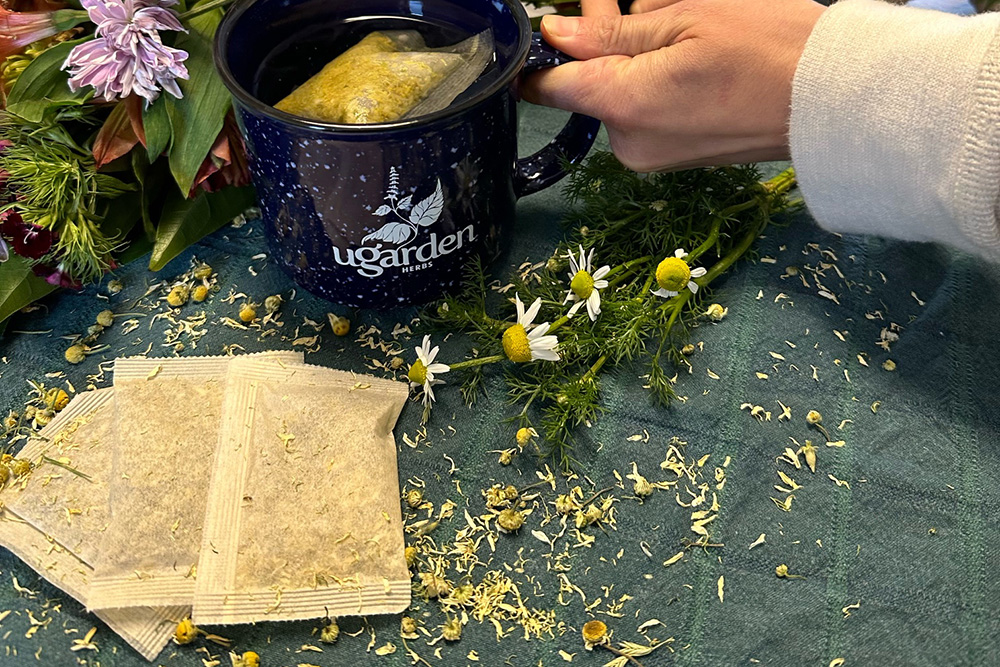
Continuing in the UGArden’s spirit of entrepreneurship, Brooks and his team took their product to the Delta Innovation District, where a group of students put together a scalable business plan and marketing pitch.
“Part of our mission is to foster entrepreneurs, so it is exciting to work with students both on the production and business end of the herbal tea initiative,” Brooks said.
On the farm, students will be growing chamomile, peppermint and tulsi, or holy basil, this spring specifically for the bagged teas.
While it may take another year for the team to hit their initial target of 10,000 bags of each variety, Brooks is confident they’ll be able to bring tulsi production to full scale this year. He’s already brainstorming expanding bagged teas beyond the dining halls.
“Depending on how much we end up producing, we will likely add the bagged teas to our line of loose-leaf tea blends,” he said.
To learn more about UGArden, including the medicinal herb program and where to find UGArden’s herbal teas, visit ugarden.uga.edu.

